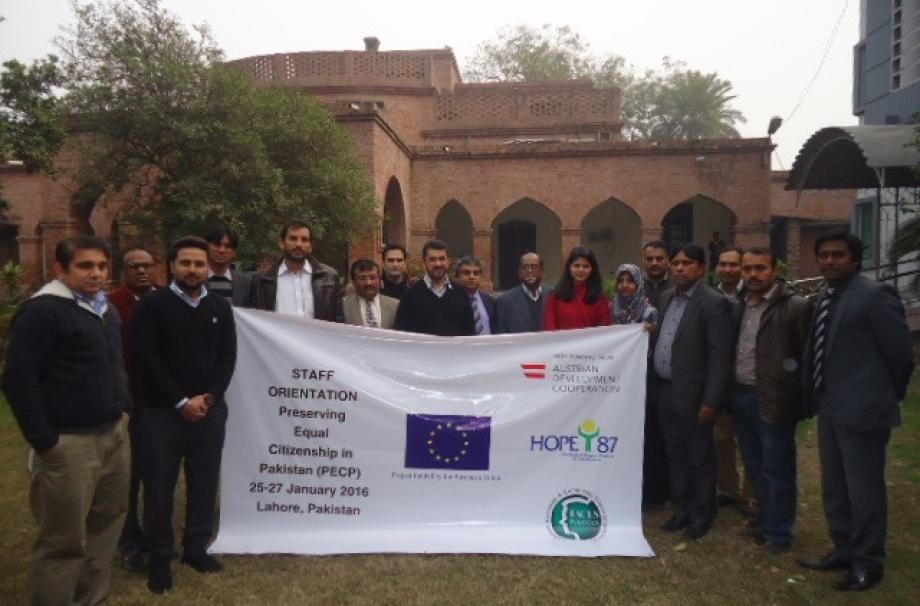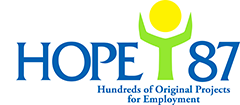Preserving Equal Citizenship in Pakistan

The action is of a national nature and addresses the federal capital Islamabad and 4 provincial capitals Quetta, Peshawar, Lahore and Karachi. Population in Pakistan is predominantly Muslim 96.28% including Sunni 82% (Deobandi, Barelvi, Ahl-e-Hadith) and Shiite 15%, 1.59% Christians (about 2.8 Mio), 1.6% Hindus, 0.25% from scheduled castes and 0.07% from other religions including Sikhs, Baha’i, Parsi and Ahmadi (Census on religion 2004). Religious minorities regularly experience discrimination and violence (304 reported incidents January–July 2014). Promotion of exclusive and sectarian interpretations of religion especially among youth by religious leaders, drive conflicts threatening stability and peace.
Overall objective is to contribute towards the enhancement and preservation of equal citizenship and constitutional literacy in Pakistan. Specific objective is to encourage the formulation and adoption of a strategy on religious tolerance and its large-scale acceptance among youth in Pakistan.
HOPE’87 will backstop and coordinate the implementation of the project, assume overall technical/financial responsibility of action on the basis of 25 years of international experience in education and working with youth. Co-applicant FACES Pakistan (FP) works with mixed religious communities, youth, involving religious leaders and forming a strong liaison with religious institutions, which provided their support in endorsing interfaith harmony initiatives in the madrassas, religious institutions and youth; Second co-applicant HOPE’87-Pakistan has expertise in working with the national and provincial governments in developing different strategies, action plans and identifying bottlenecks in effective implementation of laws/policies. By combining the strengths of these 3 organisations a positive relationship and working strategy is established to achieve the intended results. National Commission for Minorities (NCM), formed on 16.07.2014, reconstituted by the Ministry of Religious Affairs and Interfaith Harmony on 04.05.2015 brings together lawmakers, senior bureaucracy, academia and religious leaders of different faiths and perceptions (total 17 members). NCM has invited FACES to provide technical support and resources and will thus be strengthened. “Peace & Harmony Network Pakistan” (PHNP), bringing together religious leaders/institutions of different faiths and perceptions, will be strengthened by capacity building and provision of resources. Media persons and media houses will be engaged to generate positive debates around the issues of religious and inter-faith harmony enshrined in and guaranteed by the Constitution of Pakistan. Universities, Colleges and Religious institutions (particularly madrassas) will also be addressed as target groups to improve and support the common strategy for religious tolerance as well as more balanced curricula. Students studying at religious universities/colleges/madrassas, the potential youth leaders, change makers and discourse shapers of future will be engaged/trained in awareness raising on fundamental rights and the freedom of religion/belief provided in the Constitution of Pakistan. Religious leaders/institutions and trained youth will jointly engage with the decision makers and create institutional linkages with the provincial government and administration, law enforcement agencies and provincial line departments. For further information contact info@hope87.org
